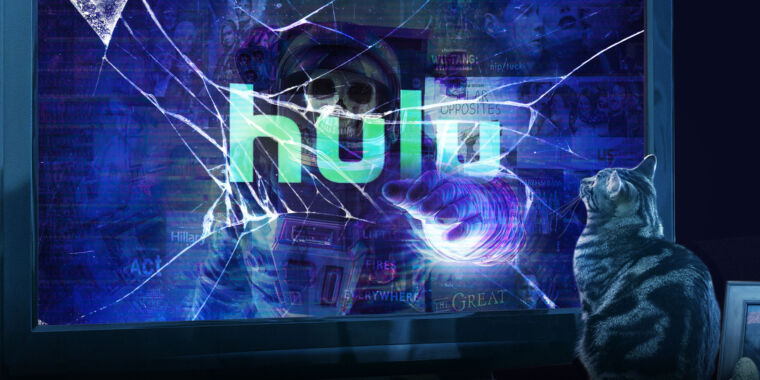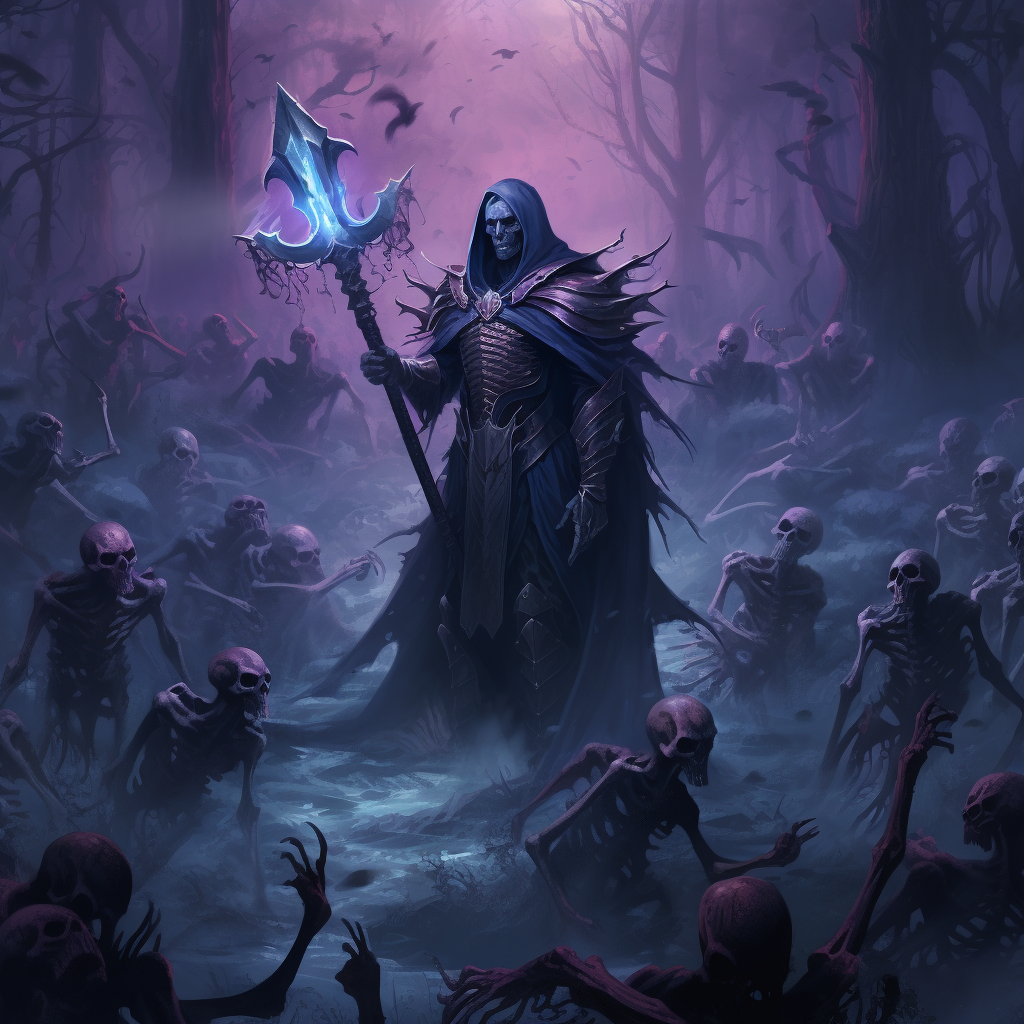For a moment, it seemed like the streaming apps were the things that could save us from the hegemony of cable TV—a system where you had to pay for a ton of stuff you didn’t want to watch so you could see the handful of things you were actually interested in.
Archived version: https://archive.ph/K4EIh
Yeah, cable was and is really awful. The amount of ads makes it literally unwatchable. And the shitty thing is that when cable TV was first introduced, the whole idea was that there wouldn’t be ads like broadcast because you were paying for it. And then they moved the goalposts. Something that Hulu in particular was very guilty of. In the beginning, only the free-tier had ads. And there was one paid tier with no ads. Then that started showing ads, and they created a higher paid tier with no ads.
To me, one of the best things about streaming was timeshifting. You didn’t have to wait for Sunday at 9:00pm to watch a show, and maybe miss it, or have to DVR it, and maybe the recording didn’t work. Or whatever. You didn’t have to schedule your time around TV. You could watch what you wanted, when you wanted. And now that’s gone too, with weekly releases of shows, or half a season now, and the other half a month later, and so on. They’re bringing back scheduled TV and it’s fucking bullshit.
Another promise was that we’d be able to basically have access to every tv show or film, and that evaporated very quickly when all the studios decided they wanted to gatekeep everything so they could charge even more for it, and then now we have them disappearing so many things that have been out there just because they don’t want to pay royalties to anyone involved.
So much culture is being lost because of greedy fucking execs who want to use the things you enjoy as an extortion tool. Going back to cable isn’t the answer. It’s a failed model and needs to die. But we need a massive overhaul of the streaming scene to figure this out. Because right now, it’s so much worse that what came before.
Another promise was that we’d be able to basically have access to every tv show or film, and that evaporated very quickly when all the studios decided they wanted to gatekeep everything so they could charge even more for it, and then now we have them disappearing so many things that have been out there just because they don’t want to pay royalties to anyone involved.
That is one part of it. The studios believed that if they did the distribution they’d be able to have a larger slice of the pie. This isn’t working as well as they thought it would in many cases (Disney is likely the exception if there is one with a very large historical catalog and several profitable franchisees) but didn’t realize the corresponding infrastructure and (customer) support costs that would incur reducing the amount that they make.
Furthermore, the residuals (things that are currently at stake in striking) are based on “having it available” even if no one is watching it. This means that studios (and Netflix and Amazon) are strongly incentivized to remove shows that aren’t getting watched sufficiently for the draw of having them there because they’re paying residuals no matter if its being watched or not.
Having a streaming catalog of 10,000 shows (Netflix has about 13,000 world wide by some accounts with about 5000 available in the US) would mean they’re paying small amounts to everyone even if they’re not getting watched. If the company (e.g. studio) isn’t set up around the infrastructure and support needed for streaming, this can easily mean that those small amounts can become more than the amount that the company is making off of streaming.
Ever notice how Amazon Prime Video rotates in lots of B movies that are available for a few weeks and then disappear again? This is to get people to watch them but minimize paying residuals for having a bunch of movies and TV series that no one watches otherwise.
With the combination of race to the cheapest for pricing (and sharing of accounts), and infrastructure / operational costs it is quite possible to be in the situation where studios are losing money on hosting shows and at the same time paying actors and writers far less than is fair… and the easiest solution that studios have to resolve this is to aggressively pull shows.
https://text.npr.org/2023/03/06/1161382179/hbo-max-disappearing-shows-series-streaming-warner (full site for a 26 minute audio version)
deleted by creator
https://www.axios.com/2023/08/09/disney-earnings-streaming-profits
Disney also managed to narrow its streaming division losses significantly to last quarter to $512 million from $1.06 billion during the same quarter the year prior.
That progress should give investors hope that Disney is on track to meet its stated goal of making its streaming business profitable by 2024.
https://www.businessofapps.com/data/disney-plus-statistics/
Disney Plus generated $7.4 billion revenue in 2022, an 42% increase year-on-year
They’re getting better and have a lot of other revenue that they can use to offset those losses while they figure out how to do streaming more profitably.
All of the following statements can be true simultaneously:
- There is a lot of revenue (note revenue and not profits) associated with streaming content
- Studios are losing money with streaming
- Actors and writers are being paid much less for residuals of streamed content than would be considered fair
deleted by creator
I am making sure that if someone else reads it who doesn’t know or wasn’t sure if I used the words properly that the up front clarification would avoid them asking and then waiting a day or so to get a response that clarifies their question. While you and I may be familiar with it, there are also high schoolers who are reading this who are less familiar with accounting terms and their specific meanings.
All great points. That said, no one should feel sympathy for Disney’s profit margins.
They can and should spend less on anti-piracy measures to become more profitable.
And Disney could be 100% profit, overnight, while paying their actors and writers handsomely, if they just license their content to a streaming service that knows what they are doing.
They can and should spend less on anti-piracy measures to become more profitable.
You mean by making a better service?
I’m not sure where you got the impression this was designed to elicit sympathy. I was just saying that it is incorrect to say they are making a lot of money/the model of financial success in streaming lol
Fair enough. I’m just getting a little tired of our monopolist companies buying every competitor while burning through venture capital and then claiming they need to raise prices to “survive”.
Totally
Going back to cable isn’t the answer. It’s a failed model and needs to die.
Defined narrowly enough, yes, that old model is dead.
But more broadly, as an economic matter there will always be a business model for having a basket of content, with some portion of historical content (classic movies and tv shows from decades past) on demand, some ongoing/current on-demand content (last week’s episode of some scripted show), and live broadcast (sporting events happening right now). Build up enough of a catalog, charge a single price to subscribers for access to that content, and people will pay for the entire bundle. And because each subscriber is interested in a different portion of that bundle, the mass of subscribers essentially cross-subsidizes the fat tail of niche content: I don’t mind paying for your niche if it means my niche gets to survive.
The technological and cultural changes have deemphasized the importance of cable’s live delivery mechanism of 100+ “channels” each with programming on a specific schedule, but the core business model still will be there: subscribe to content and you can get some combination of live channels and a catalog of on-demand content.
The content owners, through either carriage fees with the cable/IPTV providers, or through the streaming services, or everything in between, are trying to jack up the price to see what the market will bear for those bundles. They might miscalculate to the point where the subscriber count drops so much that their overall revenue decreases even with a higher revenue per subscriber (and I actually think this is about to happen). And then instead of a market equilibrium where almost everyone pays a little bit to where there’s a huge bundle of content available, the little niche interests just can’t get a subscriber base and aren’t made available, even if the content is already made.
I mean, you just defined YouTube. It has both live content and on demand, historical and real time, it covers a much broader range than any cable station will ever be able to, and it’s single price to not have ads. You don’t get charged for the service and still have to see ads.
I mean, you just defined YouTube.
Well, I was trying to give a broad enough description to cover literally every video service, so mission accomplished!
My point is that every service will have different items in each category, and that splitting up the world’s catalog of content into many different services ends up breaking down the economic benefit of bundling. The YouTube bundle is different from the Netflix bundle, which is different from the Apple TV+ bundle, which is different from Disney+ and Hulu, which is different from Max (formerly HBO Max). YouTube has live content, but if you want to watch a specific basketball game live, you’ll have to subscribe to the service with that (and you’ll have to endure ads and product placement as part of that game). And maybe that’s not the $15/month YouTube Premium, but is instead the $73/month YouTube TV.
I finally dropped YoutubeTV for the summer months because we are seldom watching tv over the summer, choosing to spend more time outside. I haven’t missed it at all. They’ll probably get me back next month when college football starts again but I’m leaning pretty hard towards dropping it again after the new year. The price increase, even though it hadn’t kicked in for me at the time was absolutely the catalyst.
In the end the people who ran the hegemony of cable TV just got their hands on the TV streaming services and turned it into the hegemony of TV streaming service.
Nothing have changed the goals people at the top had - they just needed time to adapt
The reality is that with inflating costs of necessities like food, house, and transport, more people will choose to opt out of streaming services when they jack the prices. Folks will either find alternate forms of content, or find ways of getting the content cheaper (Arrr!!)
We now just wait to see if the increased price is enough to make up for the subscribers they’ll lose.
And if you need convenience, there are pirate streamers. You pay a monthly fee and get every program
I just… will never understand paying money to pirate things. Like if I’m paying money, I’ll just pay it to the people creating the content so they create more content I like. If I’m pirating, it’d better damn well be free otherwise, what’s the point?
Because piracy is often a service problem and not always a price one. If a pirate can offer you a better service, people will pay for it.
If you only see piracy as a price issue, then it would make sense why you dont understand why people do it.
Take for example, pretty shitty android boxes preloaded with various kodi streams. Say if you speak a niche language in the U.S for example, and want media in that language, some people would be willing to pay for a (pretty shitty) android tv box that has warez steams of saidncontent because thr legal methods isnt easy to obtain nor have the technological knowlege to properly pirate.
what’s the point?
Simplicity and overall cost. Pirating is cheaper and allows you to get everything in one place versus 5 different streaming platforms. I see the draw.
And it’s hard to make the case that paying streamers equates to paying the content creators with the strikes highlighting how little the actual creators get out of the deal. I’m in favor of paying for content, but you can’t say paying Netflix their continually increasing, and more restrictive, subscription fees is actually contributing to supporting creators who make good content.
So your argument is that it makes sense to pay pirates because content creators aren’t getting paid enough? If we all switch to paying pirates, there will be no more content to steal. Hell, even if a large percentage of us switch.
Look, I get pirating content when you’re poor and can’t afford it. But if you’re actually paying, WTF dude?
My argument is that it’s not surprising that someone would choose to pay $20/mo for 1 service with all the things they want versus paying $100/mo to deal with 4 services.
The fact that Netflix et al pay their creators squat is a separate component. I was just pointing out that saying you want to pay content creators for their work doesn’t really equate to paying for a Netflix subscription. If someone wants to ensure they’re paying creators for their content, there are much better ways to do so. You can pay the $20/mo to pirate stuff, then donate to the Entertainment Community Fund, or buy something directly from a writer’s website with the $80/mo you’ve saved.
WTF are you talking about? Giving money directly to a couple creators or donating to some charity won’t get more content made. Whether I like the prices or not (I don’t), some of the money I pay to Netflix (for example) gets reinvested into making more shows. Paying money to a fucking thief does not get more shows made and never will. Nor will donating that money directly anywhere. Shows get made when the companies that make shows are making money. Not thieves.
otherwise, what’s the point?
Not having ads. It’s optional so far, but it won’t be forever. Cable proved that.
You are definitely not paying the creators even if you pay the official service, look at the protests literally going on right now. The middle man is actually stealing and we are just consuming what we like how we like it. If there were a perfect streaming service, everything on it, in all the languages I need and the resolution/audio I want then i will not be pirating. Going the “good way” is WAAAAY more inconvenient for me.
And where might we find these? I just want to make sure I don’t accidentally come across one.
Then never browse !piracy@lemmy.dbzer0.com
pay
New members welcome at !Piracy@lemmy.dbzer0.com! 🏴☠️🦜
Do what i did and stop watching TV completely. I have watched about 10 hours worth of TV in the past 12 years.
But I like TV.
Do you like commercials? And how much are you willing to pay for TV?
If the answers are “no” and “zero”, then that’s going to affect how much TV you/we watch, even if you/we like the TV shows.
As mentioned elsewhere in these comments, !piracy@lemmy.dbzer0.com.
One option, if your use case supports it, is to hop around the streaming services. We generally subscribe to one or zero for a month at a time.
The reason I buy games is because pirating them is more trouble than just paying for them.
Now with video streaming, the value add was that I didn’t even need to have to go search for something, it was just all there for a small fee.
Now for that fee, I still have to search for stuff (klwhich streaming service is it on in the first place), juggle subscriptions, and also, in some cases, have to watch ads. Why would I do that when the old ways of the sea are more convenient again?
Arrrrr, matey!
They forget pirating video is really really easy
The funny part is that they don’t even care. They’ve already made their money. Best you can do is to try to get them to see the downside.
It all comes down to greed and enshitification in the end.
deleted by creator
Which is completely unneeded. Just look at all the amazing content on Nebula (or the respective YouTube channels) for incredible content for incredibly low production cost.
deleted by creator
alternative streaming service started by youtubers. super high quality content. costs like 15 bucks a year.
It’s very frustrating to feel like I’m back to where were were before the streaming revolution: paying HUGE amounts of money to get TONS of content I’m mostly not interested in.
The only saving grace is that I can get it all without ads still, so I’ll take that win.
In the article, they talk about the bundling of services as a bad thing, but I feel like if I’m going to pay for everything anyways, I’ll happily take that huge discount, TYVM.
For my household, the price will always be lower than local cable and there is always something to watch! For free live tv, we use a HDhomerun and tv antenna.
We have MythTV and a 4 channel HD Grabber card. Similar concept. Works great if you have good TV reception and a lot of channels. My wife still uses, but frankly me not so much now.
Lot of this is online now though say our local PBS TV station streaming platform. Other stuff I can get from Tubi, and Pluto. The free Roku channel has a lot of stuff too. We also still have Netflix, but frankly I do not use it much. Would cancel except my Wife likes it.
a system where you had to pay for a ton of stuff you didn’t want to watch so you could see the handful of things you were actually interested in.
I uh…have ya’ll used streaming services? Cus this has always been how streaming services worked too.
Uh, no? Netflix used to have everything good. You could drop your $150/mo cable sub and get $10/mo Netflix and never look back.
Netflix has always been missing a ton of shows I love, and had a ton of shows I dont like. But that’s subjective. Objectively, Netflix has had a lot of shows, and you dont get to pick and choose what you pay for. Which is exactly the criticism being targeted at cable TV here.
The criticism isn’t that you get a lot of crap you don’t want. It’s that you’re paying out the nose for a lot of crap you don’t want. Netflix had (arguably, granted) a much higher ratio of watchable shows, no commercials and at a fraction of the price!
The issue is that now all the best stuff got parcelled out onto their own streaming platforms so you no longer get that high ratio of watchable stuff all for one low price. Parks and Rec isn’t on Netflix anymore. Neither is 30 Rock or Futurama or Bobs Burgers. Neither is Daredevil. Etc etc. To get all that content that used to be in one place, I now have to go to Peacock, Hulu, Disney+, etc. It ends up being the same problem of having to pay a huge monthly fee to see everything I want except instead of paying it to Comcast, I’m paying it to 10 different streaming services.
Oh you want to watch Parks and Rec? That’s $10/mo or whatever the fuck Peacock charges. I wouldn’t know because I’m not paying for an entire streaming service to watch one fucking show. Same goes for every other garbage streaming service with one or two good shows and no other redeeming qualities (looking at you Paramount+, Apple TV+, etc).
The issue isn’t that there’s a lot of crap I don’t want to watch. The issue is that there is very little I DO want to watch on each and if I were to buy them all, I’m paying the same amount I was before for cable.
You make it sound like Netflix was broken up and has less on it now, but it’s gotten more shows over time. For me Hulu popping up was amazing, Im big on animation and a lot of cartoons that were never on Netflix were on there. Hulu not existing before didnt mean those shows were on Netflix, they just werent available. Which is the upside to Netflix getting competition to its monopoly, more choices and more shows available. I hope we get more genre dedicated streaming services like Crunchyroll, then you’ve got more of an objective argument that you’re paying for what you want to watch and not “a ton of stuff you didn’t want to watch”.
Nah, Netflix used to have nearly everything, and then it got split into like a dozen different services.
Netflix used to have nearly everything
“a system where you had to pay for a ton of stuff”
It’s like ya’ll are directly agreeing with me in words but not really grasping the words you’re saying. Streaming services have always had a lot of shows, some you want to watch, some you dont, but your subscription pays for all of them regardless. Exactly what ya’ll are attempting to criticize cable TV for.
The difference is that in cable TV you are beholden to their schedule. You might subscribe to a channel that has exactly what you want and still be unable to watch it because you are not free at that time.
If stream had everything in one single service, who cares that it also has stuff that you don’t have any interest in? You could spend every moment watching just the thngs that you want to, there was no downside to having things you don’t care about. It’s such an archaic mindset to assume the price is bound to potential availability on an on-demand service.
Netflix used to be priced affordably and have nearly everything. We are seeing now with services being split and prices rising that it doesn’t cost more because it has more shows, just on the contrary. It costs more because they think they can charge more and get us to subscribe to multiple services that offer less.
If stream had everything in one single service, who cares that it also has stuff that you don’t have any interest in?
Im gonna quote this post criticizing cable tv to answer this, “you had to pay for a ton of stuff you didn’t want to watch”
I literally just responded to this.
I literally just responded to this. The comment you are responding to is about what’s the difference and why this is not the issue with streaming.
The difference is that in cable TV you are beholden to their schedule. You might subscribe to a channel that has exactly what you want and still be unable to watch it because you are not free at that time.
Netflix used to be priced affordably and have nearly everything. We are seeing now with services being split and prices rising that it doesn’t cost more because it has more shows, just on the contrary. It costs more because they think they can charge more and get us to subscribe to multiple services that offer less.
It’s like you picked the single sentence that doesn’t address that exact point to quote.
I came in to call out the hypocrisy of this post. Who cares that it has stuff that you don’t have any interest in? This post does that Im directly quoting. If you’re here to argue that having irrelevant shows doesnt affect the price, I don’t think you’re agreeing with this post anymore. Because then why care that cable has irrelevant shows?
Oh my fucking god!
The difference is that in cable TV you are beholden to their schedule. You might subscribe to a channel that has exactly what you want and still be unable to watch it because you are not free at that time.
How many times are you going to try to bring it back around the same thing that I already responded to.
Streaming services are a worse deal by losing shows and movies that they already had and splitting off into several services. They didn’t use to be like cable, and having a lot of stuff was their advantage, because there is no schedule limitations. A service that had everything has a bunch of stuff each person won’t care about, and it still would have everything everyone would ever want. Priced reasonably, it wouldn’t be an issue specifically as streaming.
I dunno what’s your deal with cable that you want to insist in calling out hypocrisy that doesn’t even apply? If you love cable, keep your cable.
It’s referring to cable packages. Oh you want to be able to watch FX shows? Then get the blue-tier package to add 30 random channels, 28 of which you don’t want for another $30 on top of the base price! Oh you want AMC too? Then get the green tier for another $45 as well that also has 35 channels you don’t want. Sorry, we don’t have a package with both FX and AMC, you’ll need to get the blue AND green packages on top of the $60 base subscription. Sorry, you can’t just choose what channels you want.
Circa 2011 it’d just be like Netflix and/or Hulu were all you need to get most of the content since they had deals with the different studios. Now they’re all segmenting off onto their own.
It’s referring to cable packages.
uh huh, and Im pointing out how it applies to streaming services
And I’m pointing out it wasn’t that way 10 years ago.
🤖 I’m a bot that provides automatic summaries for articles:
Click here to see the summary
Discovery’s David Zaslav have also indicated that their services were initially priced “too low” in an effort to draw a huge and unendingly expanding subscriber base.
In the early-to-mid 2010s, a subscription to Netflix and Hulu and your friend’s borrowed HBO password could get you access to the vast majority of all the TV that was worth watching.
Netflix had a huge archive of older shows plus a slowly growing library of its buzzy releases like Orange Is the New Black, Jessica Jones, and Stranger Things.
Not content to let Netflix have what looked like a lucrative new market all to itself the companies that made and distributed TV decided one by one as the decade wore on that it was time to create their own apps and generate their own subscription revenue.
Tech companies also decided to jump in, with Amazon Prime Video pushing into expensive scripted dramas and Apple TV+ becoming relevant by dint of throwing untold gobs of money at all kinds of projects.
Netflix announced its first subscriber loss in a decade in early 2022, cratering its stock; despite some recovery, it’s still only worth about two-thirds what it was at its peak in late 2021.
Heya @autotldr@lemmings.world , can you add some block-quoting to your summary like the below:
Click here to see the summary
Discovery’s David Zaslav have also indicated that their services were initially priced “too low” in an effort to draw a huge and unendingly expanding subscriber base.
In the early-to-mid 2010s, a subscription to Netflix and Hulu and your friend’s borrowed HBO password could get you access to the vast majority of all the TV that was worth watching.
Netflix had a huge archive of older shows plus a slowly growing library of its buzzy releases like Orange Is the New Black, Jessica Jones, and Stranger Things.
Not content to let Netflix have what looked like a lucrative new market all to itself the companies that made and distributed TV decided one by one as the decade wore on that it was time to create their own apps and generate their own subscription revenue.
Tech companies also decided to jump in, with Amazon Prime Video pushing into expensive scripted dramas and Apple TV+ becoming relevant by dint of throwing untold gobs of money at all kinds of projects.
Netflix announced its first subscriber loss in a decade in early 2022, cratering its stock; despite some recovery, it’s still only worth about two-thirds what it was at its peak in late 2021.
That should make it clearer that you’re copying/quoting information from another source and not just a spoiler comment. Maybe add the page source at the end of the spoiler too, or at least site name.
I already created the summary. You can find it at https://lemmings.world/comment/1120768. (I tried to create the link for your instance but I failed miserably, for which I’m very sorry).
It’s ok I cancelled my subscription anyway 🤷♂️ along with Spotify
All of these streamers wanted to be the next Netflix when they should have been the next HBO Max.
I think you mean “MAX: The one to watch for HBO”
No, I mean HBO “The New CEO made a” MAX “mistake in rebranding”.












